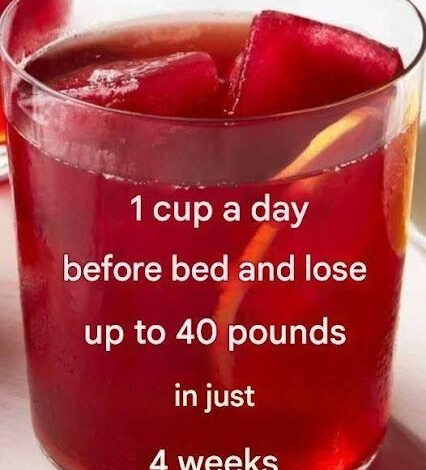
How People Lose 5.5 kg (12 Pounds) in 3 Days — and Why It’s Not Safe
Losing 5.5 kg (12 pounds) in just three days may sound appealing to those seeking rapid weight loss, but it’s important to understand how such extreme results are achieved—and why they come with significant health risks. While these drastic methods might deliver quick results, they are neither sustainable nor healthy in the long term. Let’s break down how this type of weight loss happens and why it’s not a safe or recommended approach.
How Rapid Weight Loss Happens
1. Severe Caloric Restriction
What It Is: Consuming far fewer calories than your body needs (e.g., 500–800 calories per day).
Why It Works: When you drastically reduce calorie intake, your body turns to stored energy (glycogen, fat, and muscle) for fuel.
Reality Check: Most of the initial weight loss comes from water and glycogen stores, not fat.
2. Extreme Diets (e.g., Juice Cleanses, Detox Plans)
What It Is: Replacing meals with liquids like juices, teas, or broths, often marketed as “detox” plans.
Why It Works: These diets severely limit calories and eliminate solid foods, leading to rapid water and glycogen loss.
Reality Check: The body doesn’t need “detoxing”—your liver and kidneys handle that naturally. These diets deprive you of essential nutrients.
3. Diuretics or Water Manipulation
What It Is: Using diuretics, cutting sodium, or dehydrating the body to shed water weight.
Why It Works: This causes the body to lose water rapidly, which shows up as weight loss on the scale.
Reality Check: This is not true fat loss. Dehydration can lead to serious health issues like kidney damage, dizziness, and electrolyte imbalances.
4. Colon Cleanses or Laxatives
What It Is: Using laxatives, enemas, or colon-cleansing products to empty the digestive system.
Why It Works: This removes waste and water from the intestines, causing temporary weight loss.
Reality Check: This method disrupts gut health and can lead to dehydration, nutrient deficiencies, and dependency on laxatives.
5. Intense Exercise + Severe Dieting
What It Is: Combining hours of intense exercise with very low-calorie intake.
Why It Works: Burns calories quickly and forces the body into a large caloric deficit.
Reality Check: Overtraining and underfueling can lead to exhaustion, injury, and metabolic damage.
Why Losing 5.5 kg (12 Pounds) in 3 Days Is Not Safe
1. Most of the Weight Lost Is Water, Not Fat
Rapid weight loss primarily comes from losing water, glycogen (stored carbs), and some muscle—not fat. True fat loss takes time and consistency.
2. Nutrient Deficiencies
Extreme diets often lack essential nutrients like protein, healthy fats, vitamins, and minerals, which can weaken your immune system and impair bodily functions.
3. Muscle Loss
Without adequate protein and calories, your body may break down muscle tissue for energy, reducing strength and slowing your metabolism.
4. Metabolic Slowdown
Drastic calorie restriction puts your body into “starvation mode,” where it conserves energy by slowing down your metabolism. This makes it harder to lose weight in the future.
5. Dehydration Risks
Many rapid weight-loss methods (e.g., diuretics, low-carb diets) cause dehydration, which can lead to dizziness, fatigue, kidney problems, and even heatstroke.
6. Mental and Emotional Strain
Extreme dieting can trigger feelings of deprivation, irritability, and food obsession, potentially leading to binge-eating or disordered eating patterns.
7. Unsustainable Results
Rapid weight loss is almost always temporary. Once normal eating resumes, water weight, glycogen, and fat return, often resulting in rebound weight gain.
Healthier Alternatives for Sustainable Weight Loss
Instead of resorting to dangerous fad diets or extreme measures, focus on safe, sustainable strategies for long-term success:
1. Adopt a Balanced Diet
Eat whole, nutrient-dense foods like fruits, vegetables, lean proteins, whole grains, and healthy fats. Avoid processed foods high in sugar and unhealthy fats.
2. Create a Moderate Caloric Deficit
Aim to eat 500–750 fewer calories per day to lose about 0.5–1 kg (1–2 pounds) per week—a safe and realistic goal.
3. Stay Hydrated
Drink plenty of water throughout the day to support metabolism, digestion, and overall health.
4. Exercise Regularly
Combine strength training and cardio to build muscle, burn calories, and boost your metabolism.
5. Prioritize Sleep and Stress Management
Poor sleep and chronic stress can disrupt hormones that regulate hunger and weight, making it harder to lose weight.
6. Be Patient and Consistent
Focus on gradual progress rather than quick fixes. Small, consistent changes lead to lasting results.




